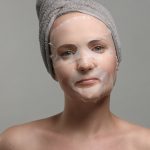Skin care is an essential part of our daily routine, and it’s important to choose the right products that work best for your skin type. With so many options available in the market, it can be overwhelming to find natural skin care products that are both effective and safe. In this blog post, we will discuss everything you need to know about natural skin care, including the best ingredients for glowing skin, how to choose the right natural skin care products, and DIY recipes that you can try at home.
Introduction to Natural Skin Care
Natural skin care involves using products that contain naturally derived ingredients such as herbs, fruits, vegetables, and other plant-based materials. These ingredients are known to have therapeutic benefits for the skin and are free from harsh chemicals and synthetic substances that can cause irritation or harm to the skin. Natural skin care products are becoming increasingly popular due to their effectiveness and safety.
The Best Ingredients for Glowing Skin
There are several key ingredients that are commonly used in natural skin care products that help promote healthy, glowing skin. Some of these include:
1. Vitamin C – This powerful antioxidant helps brighten the skin by reducing hyperpigmentation and dark spots. It also boosts collagen production, which helps reduce fine lines and wrinkles.
2. Hyaluronic Acid – This ingredient draws moisture into the skin, making it look plump and hydrated. It also helps improve the texture of the skin by smoothing out rough patches.
3. Jojoba Oil – This oil is similar to sebum, a natural oil produced by the skin, which makes it great for balancing oily or dry skin. It also contains vitamins and minerals that nourish the skin.
4. Coconut Oil – This oil has anti-inflammatory properties that help soothe redness and inflammation on the skin. It also acts as a moisturizer and provides protection against sun damage.
5. Green Tea Extract – This extract is rich in antioxidants that protect the skin from environmental damage caused by pollution and UV rays. It also helps reduce puffiness and swelling around the eyes.

How to Choose the Right Natural Skin Care Products
Choosing the right natural skin care products can be challenging, especially with so many different brands and formulations available. Here are some tips to help you make informed decisions when shopping for natural skin care products:
1. Read Labels – Look for products that list natural ingredients first on the label. Avoid products that contain parabens, sulfates, phthalates, or other potentially harmful chemicals.

2. Check Reviews – Read reviews from other customers who have tried the product before buying it. This will give you an idea of its effectiveness and whether it works well for people with similar skin types.
3. Test Samples – Many companies offer sample sizes of their products, which allow you to test them before committing to a full size purchase. Take advantage of these offers to see if the product works for you.
DIY Natural Skin Care Recipes
Making your own natural skin care products is not only cost-effective but also allows you to control what goes into your products. Here are three simple DIY recipes that you can try at home:
1. Homemade Face Mask – Mix together one tablespoon each of honey, yogurt, and avocado and apply to clean face. Leave on for 10 minutes then rinse off with warm water.
2. Body Scrub – Combine two cups of sugar, half cup coconut oil, and five drops of lavender essential oil in a bowl. Massage onto damp skin and rinse off with warm water.
3. Moisturizing Lotion – Whisk together four tablespoons shea butter, two tablespoons coconut oil, and one tablespoon jojoba oil until smooth. Apply to dry areas of the body like elbows, knees, and feet.
Conclusion
In conclusion, choosing natural skin care products can be beneficial for your overall health and wellbeing. By understanding the best ingredients for glowing skin, knowing how to select the right products, and creating your own DIY recipes, you can achieve radiant, healthy looking skin without compromising your safety or the environment.







